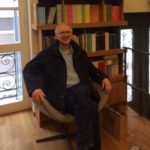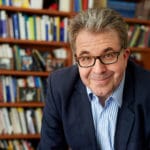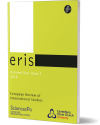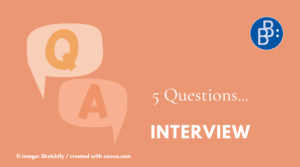Christian Lequesne and Christopher Hill, editors of the Budrich Journal ERIS – European Review of International Studies, agreed to reply to our 5 questions. Before we start, here are the short CVs:

Christopher Hill FBA, has been Wilson E. Schmidt Distinguished Professor of International Relations at SAIS Europe (the School of Advanced International Studies, Johns Hopkins University, Bologna) since January 2017. He is also Emeritus Professor of International Relations at the Department of Politics and International Studies (POLIS) of the University of Cambridge, and an Emeritus Fellow of Sidney Sussex College. He held the Montague Burton chair at the LSE between 1991-2004, and the Sir Patrick Sheehy chair at Cambridge between 2004-2016. He has published widely in the areas of foreign policy analysis, European foreign policy and general International Relations. He was elected a Fellow of the British Academy in 2007. He received an Honorary Doctorate from the University of the Peloponnese in 2015, and was made an Ufficiale dell’Ordine della Stella d’Italia in 2017.

Christian Lequesne is a professor at the Department of political science at Sciences Po, Paris. He was from 2009 to 2013 the director of the Center for International Studies (CERI) at Sciences Po. He was also Sciences Po –LES Alliance Professor at LES from 2006 to 2008 and director of the Center for Social Studies in Prague from 2004 to 2006. He is a specialist of European Studies and Sociology of Diplomacy.
What will be the main challenge for your research field in the coming years?
CH: As usual, it is about how to understand the complex links between domestic and international politics. In my case this is with special reference to the UK and Brexit, to the interplay between populism and foreign policy, and to the ways in which multicultural societies are complicated by transnationalism.
CL: Having been a EU scholar for so many years, I felt important to go to another direction when I finished my work as Head of Department in 2014. I discovered diplomacy and the more specifically diplomatic practices. This is what I am working on, concentrating on the role of foreign services in the world but also the contribution of expats to foreign policy. My next book will be about French expats and their relationships to the French State.
Why would anyone want to pursue research in your field?
CH: International Relations is one of the most popular subjects in terms of student demand, at both undergraduate and researcher level, for obvious reasons. We need urgently how to understand how the world hangs together, and when it does not, why not.
CL: Unfortunately, students are less interested than ten years ago by EU studies. It is a pity. We still need to have people trained to become EU scholars and EU practitioners. Students are fascinated by diplomacy because they want to reflect about mediating the world. Students are pacifist in general and rightly so.
Why did you choose your research field? What motivates you in your field in particular?
CH: As a doctoral student I was motivated to find out why a second world war happened only twenty years after the ‘war to end wars’, and what were the decision-making processes on the British side which led it to go to war in September 1939 for a country (Poland) which in practice it was unable to defend.
CL: I was born from a French father and a German mother. My parents were very pro-EU because of their personal experience. My father was a French officer who was posted in Southern Germany in 1948 and met my mother. I remember them telling me when I was a boy that part of my father’s French family refused to attend their wedding in 1952 because my mother was German. A couple of years later, my mother became so well accepted in the French family that I was convinced that Europe was a great project. The older I am, the more I believe that starting a PhD on French EU politics at the age of 24 with Alfred Grosser as supervisor was not by chance!
Which (academic) book has influenced you the most?
CH: Samuel Williamson’s The Politics of Grand Strategy
CL: Raymond Aron’s Peace and War: A Theory of International Relations
I am author with Barbara Budrich because …
CH: I am an editor with Barbara Budrich because I was honoured with the invitation to join Prof Lequesne in editing the European Review of International Studies.
CL: I am an editor with Barbara Budrich because I was invited to join Prof. John Groom’s project in editing the European Review of International Relations. John was the man who had the idea of ERIS. He wanted to have a European journal because he believed in the capacity of Europe to produce original works in IR. I asked after Chris to join me as a coeditor, because he has the same engagement than John on Europe.
Published with Budrich:

ERIS – European Review of International Studies.

